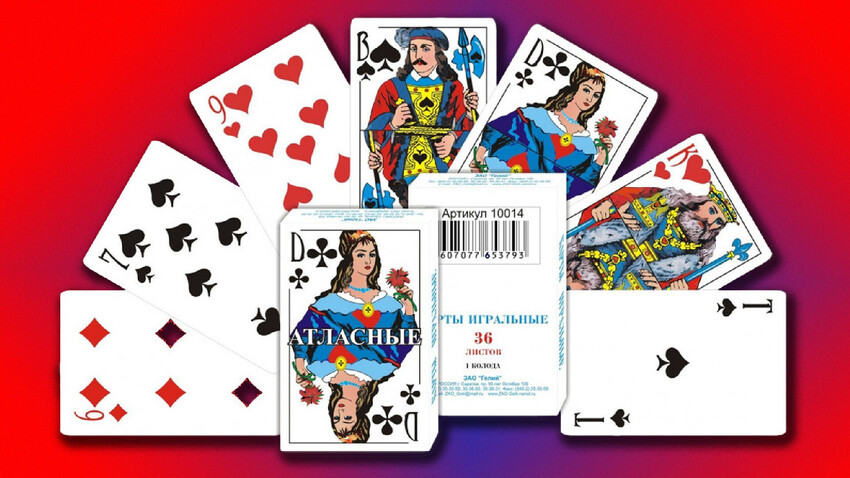
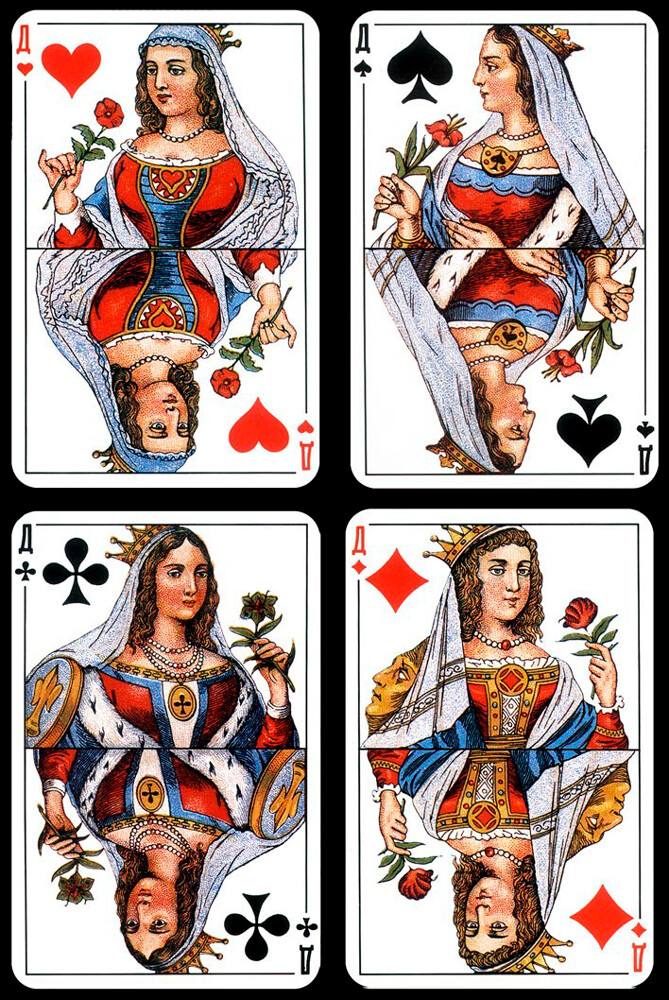
Queens
Public domainThe deck was invented in the 1860s by artist Adolphe Charlemagne, grandson of the French sculptor, Jean-Baptiste Charlemagne-Baudet, who had moved to St. Petersburg during the reign of Catherine the Great.
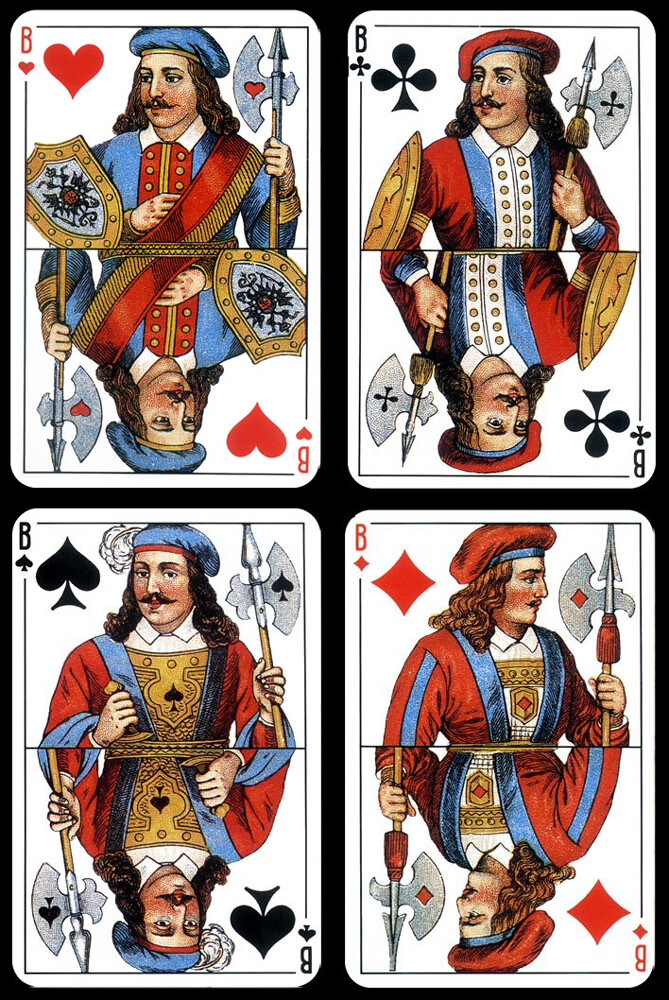
Jacks
Public domainHe was inspired by the old French card decks, but significantly changed and simplified the drawing. In some cards, Adolphe also added purely Russian elements – the double-headed eagle on the shield of the Jack of Hearts, for example. By the way, it was Charlemagne who was the author of the officially approved state emblem of the Russian Empire.
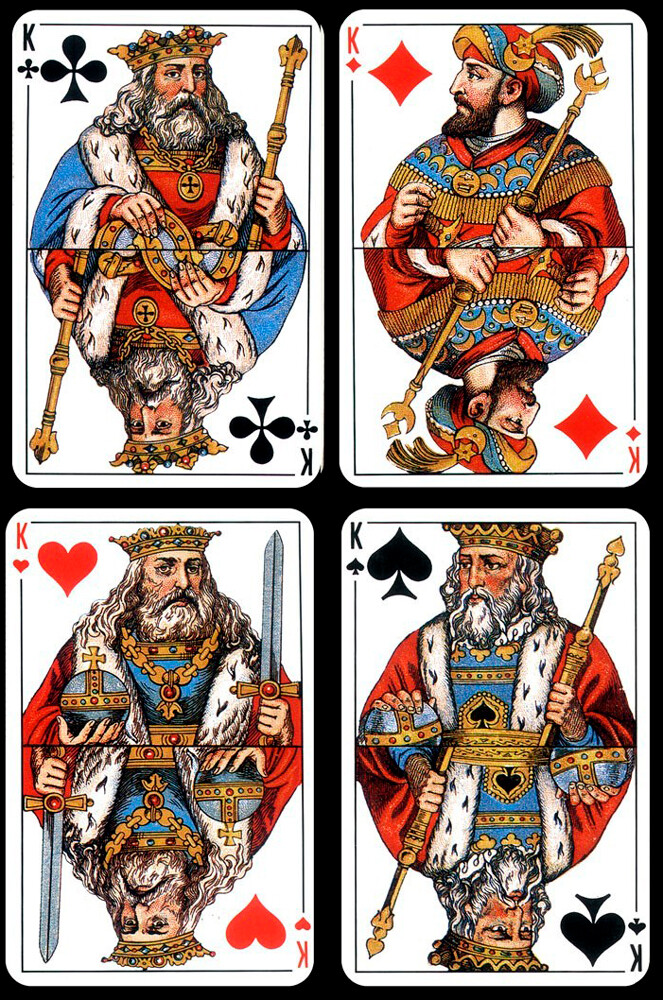
Kings
Public domainAt first, it was called ‘Satin’, because of the high quality of the paper on which the cards were printed. It was rubbed with talcum powder and soap, so the cards shined and slid beautifully when shuffled. Later, such cards were printed on low-quality paper, but the name ‘Satin’ nickname stuck with the Charlemagne design.
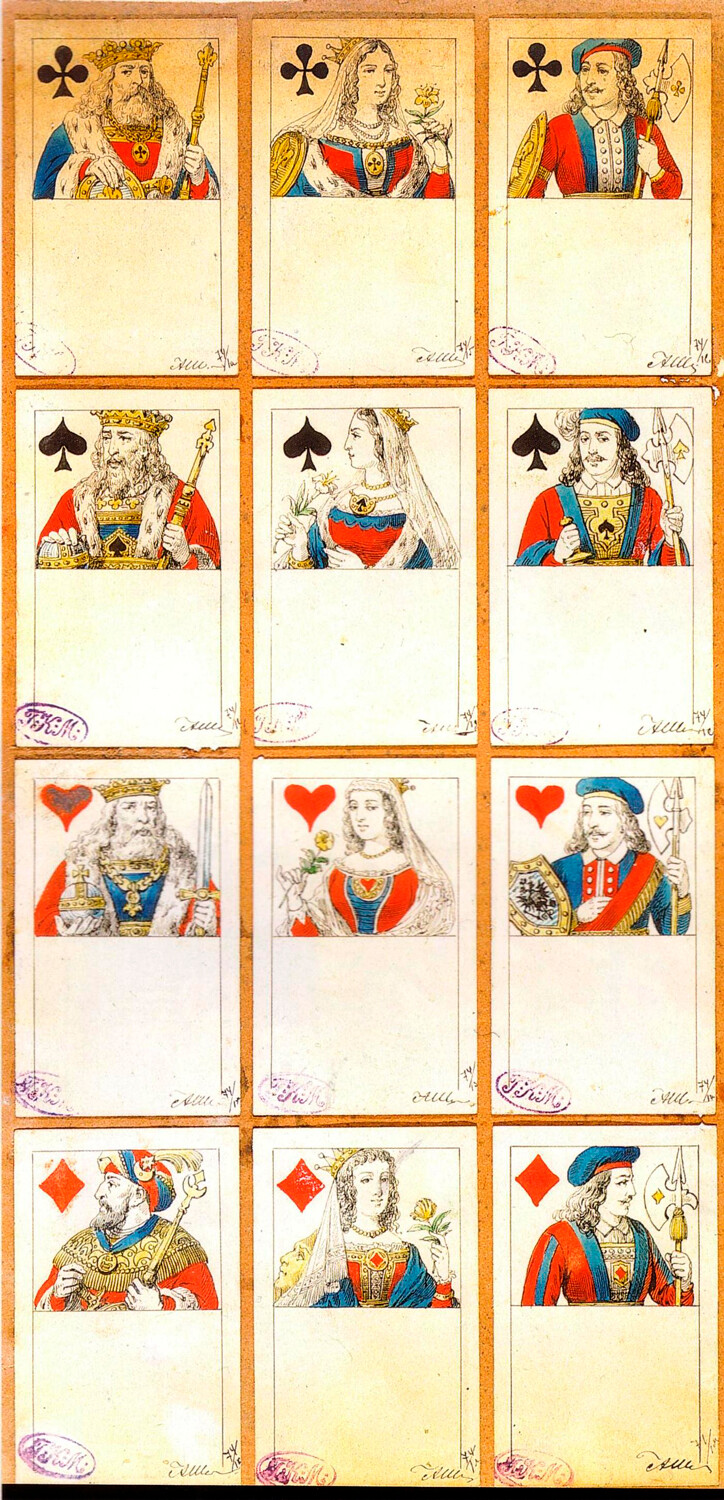
Charlemagne’s original design sketches
Public domainIn the Russian Empire, the cards were printed with the approval of the emperor. The state had a monopoly on card printing and a special Imperial Card Factory was opened for this purpose, with the proceeds going to the Imperial Charitable Foundation. The Ace of Diamonds bore the emblem of the fund.
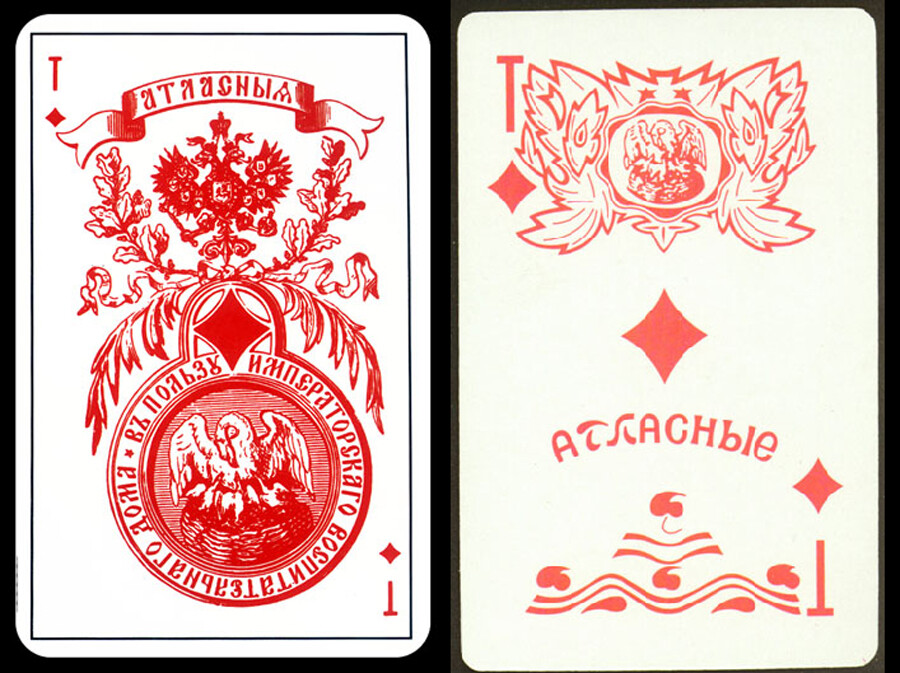
Ace of Diamonds before and after the revolution
Public domainSurprisingly enough, after the 1917 Revolution, the Charlemagne deck continued to be made. However, all imperial attributes were removed. It was the Ace of Diamonds that had changed most of all. And the word ‘satin’ (‘Atlasny’ in Russian) as the highest grade of cards is still printed on it.
Charlemagne’s original design sketches.
Dear readers,
Our website and social media accounts are under threat of being restricted or banned, due to the current circumstances. So, to keep up with our latest content, simply do the following:
If using any of Russia Beyond's content, partly or in full, always provide an active hyperlink to the original material.
Subscribe
to our newsletter!
Get the week's best stories straight to your inbox